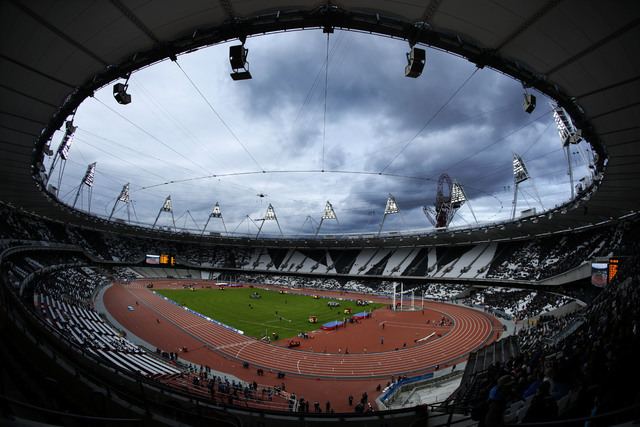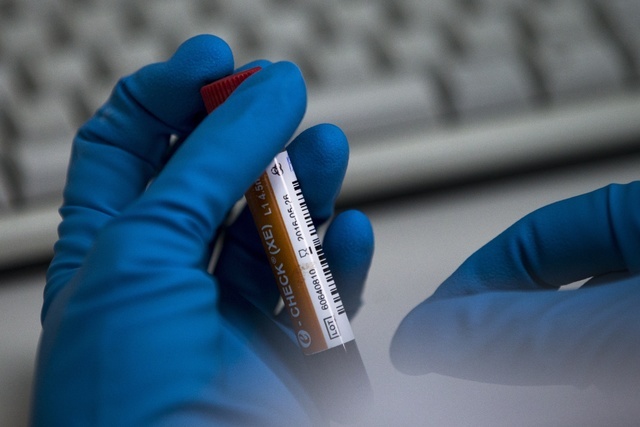23 athletes positive in retests from London Olympics, IOC says


LONDON — Nearly two dozen athletes tested positive in reanalysis of their doping samples from the 2012 London Olympics, adding to the more than 30 already caught in retesting from the 2008 Beijing Games.
The International Olympic Committee said Friday that 23 athletes from five sports and six countries had positive findings in retests with improved techniques on 265 samples from the London Games.
The IOC did not identify the athletes, their sports or their nationalities.
“The reanalysis program is ongoing, with the possibility of more results in the coming weeks,” the IOC said .
The 23 London athletes are in addition to the 31 who tested positive in retesting from the Beijing Olympics. The IOC said Friday that another sample from Beijing has since shown “abnormal parameters,” and the case was being followed up.
Overall, up to 55 athletes from the past two Summer Olympics could be retroactively disqualified and have their results, and any medals, stripped.
The IOC stores Olympic doping samples for 10 years so they can be reanalyzed when new testing methods become available.
The current retesting program targeted athletes who could be eligible to compete at the Rio de Janeiro Olympics in August.
“These reanalyses show, once again, our determination in the fight against doping,” IOC President Thomas Bach said. “We want to keep the dopers away from the Olympic Games in Rio de Janeiro. This is why we are acting swiftly now.”
Bach said he has appointed a disciplinary commission which “has the full power” to sanction athletes.
The IOC still has to retest the athletes’ “B” samples. Formal positive cases are not declared until the “B” samples confirm the original findings.
The IOC said the athletes, their national Olympic committees and their international sports federations were being informed ahead of formal disciplinary proceedings.
“All athletes found to have infringed the anti-doping rules will be banned from competing at the Olympic Games” in Rio, it said.
The IOC said the retests were carried out using “the very latest scientific analysis methods.”
World Anti-Doping Agency president Craig Reedie said the results showed the system of saving drug samples for later retesting works.
“The discovery of 23 positives shows the effectiveness of new methods and modern science,” Reedie told The Associated Press. “So athletes be warned. If you were cheating and thought you got away with it, you will be caught.”
The IOC retested 454 samples from Beijing. Of those original 31 positives, the Russian Olympic Committee confirmed that 14 involved Russian athletes.
Russian state TV said they included 10 medalists, among them high jumper Anna Chicherova. She won the bronze medal in Beijing and went on to take gold in London.
Match TV said 11 of the 14 athletes from Beijing were from track and field, including 4×100-meter relay gold medalist Yulia Chermoshanskaya.
Spanish hurdler Josephine Onyia has been identified in Spain as being one of the athletes whose samples from Beijing was positive.
The new positives come just over two months before the Rio Olympics and with Russia at the center of state-sponsored doping allegations.
The World Anti-Doping Agency is investigating claims by Moscow’s former anti-doping lab director, Grigory Rodchenkov, that he ran an organized doping program for Russian athletes and swapped out their tainted samples for clean ones during the 2014 Sochi Winter Games.
The IAAF, meanwhile, is set to decide on June 17 whether to maintain or lift its suspension of Russia’s track and field athletes from global competition. Russia has argued it would be unfair to ban its entire team from the Rio Olympics, but critics say evidence of systematic, state-backed doping should be enough to keep them out.
Including the new retest results, the total number of doping cases for the past two Summer Olympics has soared to 32 for London and 57 for Beijing. The previous high for a single Olympics was 26 cases from the 2004 Athens Games, according to IOC statistics.
Britain’s national anti-doping agency welcomed the latest findings from the London retests.
“The ability to retest samples, as a result of new intelligence or the development of new testing techniques, is a vital tool in the fight against doping in sport,” UK Anti-Doping operations director Pat Myhill said. “Retrospective analysis allows us to pursue those who cheat clean athletes, long after the competition has ended.”












